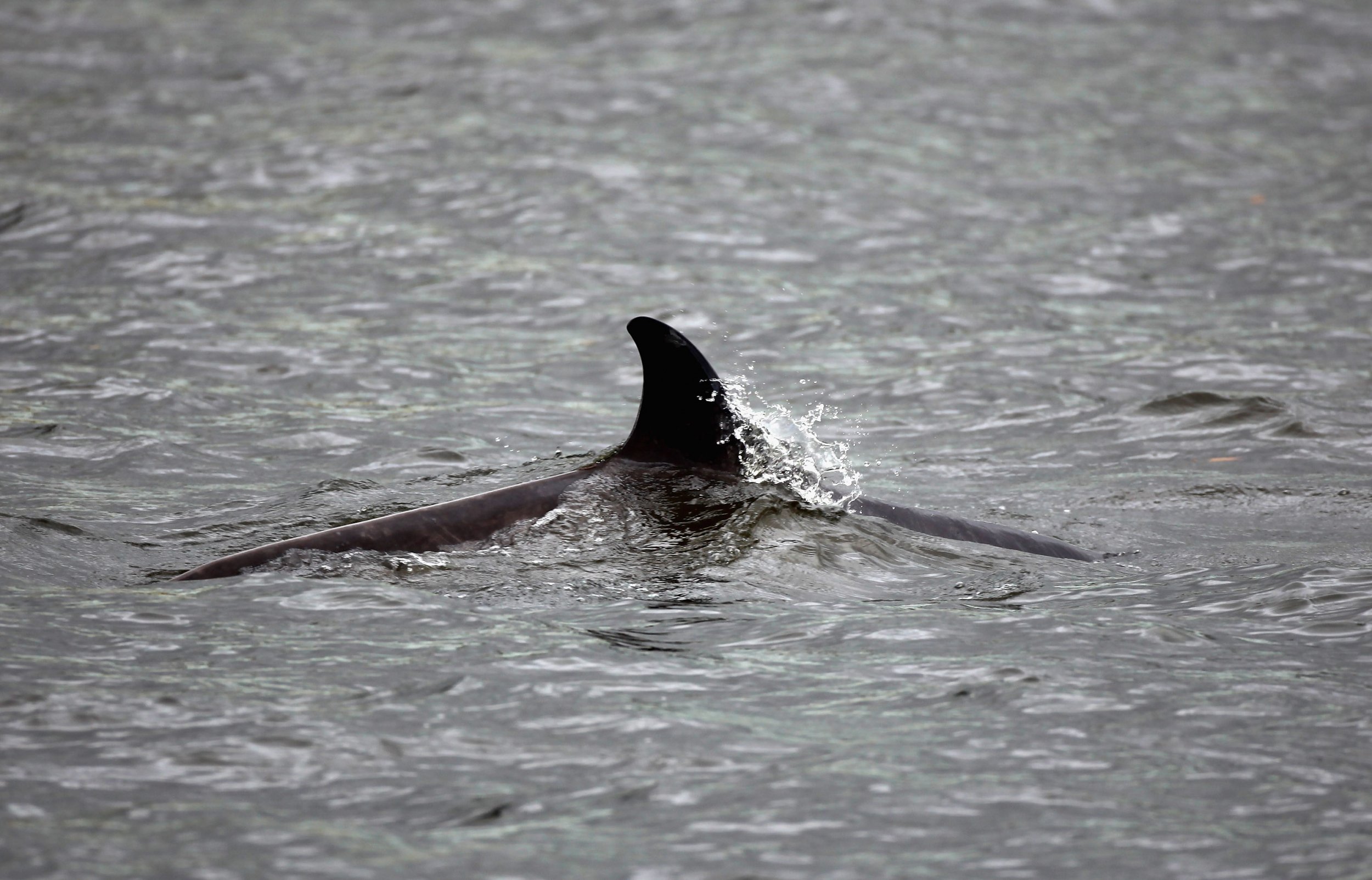
A record number of mysterious whale deaths off British shores could be the result of high submarine traffic in the northern Atlantic Ocean, marine researchers claim.
At least 43 Cuvier's beaked whale carcasses have washed ashore across five western Scottish islands in just over a month. This means the mortality rate of the species in the waters off the country's Outer Hebrides islands of Islay, Skye, Tiree, Mull and Ulva has been about 15 times higher than the annual average. Earlier this week, the tide of carcasses reached the Scottish mainland, as two washed up on the Kintyre Peninsula, around 70 miles from Glasgow.
The macabre sights on the islands' beaches have prompted the British government to investigate the morbid trend. State experts suspect sea traffic, particularly by vessels that travel underwater near the whales' habitats, could be to blame.
"This particular species is very sensitive to sonar because they dive up to three kilometres," Mariel Ten Doeschate, a data analyst with the government-funded Scottish Marine Animal Stranding Scheme (SMASS), which is investigating the deaths, told The Times of London. "This could have a real effect on population numbers so we want to ask more targeted questions of the UK government following the investigation."
The sonar signals of submarines or seismic surveys can be very distressing to the sea mammals. The sonar waves can scare deep-diving whales, causing them to surface too quickly, which in turn results in their experiencing something like decompression sickness or divers' disease. The rapid transition from one level of pressure to another effectively causes a buildup of gas bubbles in the body that could cause shock and breathing problems.
The SMASS team is still in the process of determining the exact reason for the cause or causes of the whale deaths. Nick Davison, who collects marine animal stranding reports for SMASS, said last week that Cuvier's beaked whales were also washing up dead on the coast of nearby Ireland, whose eastern seafront goes out directly into the open ocean.
"Something has clearly happened and probably on the Irish continental shelf," he said. "We have had mass events involving this species in 2008 and the winter of 2014–15 but nothing on this scale. This is unprecedented."
The Times highlighted comments by U.K. Defense Secretary Gavin Williamson, who said in May that there had been a tenfold increase in Russian submarine activity in the north Atlantic.
A short while later, U.S. Navy Chief of Naval Operations Admiral John Richardson also reported a resurgence of both Russian and Chinese submarine activity. NATO and the British Ministry of Defense has warned of similar increases, but SMASS has yet to determine who or what exactly is to blame.
"The cause is unknown. But one of the main suspects is mid-range sonar. These are the deepest-diving whales in the world. Sonar could cause them to suffer, in effect, the bends," he said, referring to a colloquial term for diver's disease. "We have contacted the military, but whatever has happened has happened in international waters, which could involve any number of navies."
Uncommon Knowledge
Newsweek is committed to challenging conventional wisdom and finding connections in the search for common ground.
Newsweek is committed to challenging conventional wisdom and finding connections in the search for common ground.
About the writer
I am a Staff Writer for Newsweek's international desk. I report on current events in Russia, the former Soviet Union ... Read more
To read how Newsweek uses AI as a newsroom tool, Click here.








